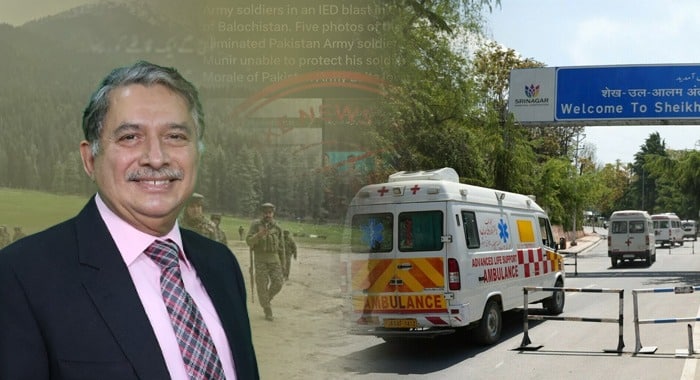Syed Akhtar Ali Shah
Blaming others for its internal failures has become a deeply entrenched habit of India. In the absence of evidence, New Delhi has repeatedly chosen to inflame emotions and distort realities rather than confront the truth. This pattern of deception is once again visible in its latest accusations.
The Kashmiri freedom movement is an indigenous struggle, born from decades of injustice, broken promises, and relentless oppression. Pakistan is not a party to the conflict; it merely serves as an advocate for the legitimate aspirations of the Kashmiri people. Yet India, desperate to conceal its brutal occupation and human rights violations, persistently accuses Pakistan, hoping to distract the world from its own atrocities.
Today, terrorism is a global challenge. However, it is disgraceful that some states, like India, have cynically weaponized the issue to crush legitimate political dissent and justify brutal crackdowns. Instead of addressing the undeniable grievances of Kashmiris, India has used the label of “terrorism” to whitewash its own state-sponsored violence and systemic repression.
Since the partition of 1947, Kashmir has remained a bleeding wound, kept alive by India’s broken promises and deliberate betrayals. Even the semi-autonomous status granted to Kashmir under Article 370 was stripped away unilaterally, exposing India’s hollow commitments and deepening the resentment of the Kashmiri people. The cycle of uprisings, protests, and armed resistance is not manufactured from abroad—it is the inevitable reaction to decades of humiliation and oppression.
Over the years, numerous incidents of violence have occurred, and with robotic predictability, India has pointed fingers outward without offering credible proof. Pakistan, in contrast, has acted responsibly by banning extremist organizations and conducting trials, acknowledging the importance of global security. India, however, has preferred to hide behind baseless allegations and jingoistic rhetoric.
Even today, after incidents targeting specific religious groups, India once again rushes to blame others without a shred of solid evidence. Rather than admitting to its collapsing security apparatus, its rising communal violence, and its failure to win the hearts of Kashmiris, New Delhi continues its tired charade of victimhood.
This consistent deflection of blame is not the mark of a responsible state; it is the behaviour of a nation too cowardly to face its own failures. Instead of working towards peace, India manipulates public emotions, fuels hatred, and distracts its citizens from the real culprits: its own policies of discrimination, militarisation, and oppression.
The world must no longer be fooled by India’s carefully crafted lies. The Kashmiri people’s demand for dignity and self-determination is real—and no amount of propaganda can erase that truth.





